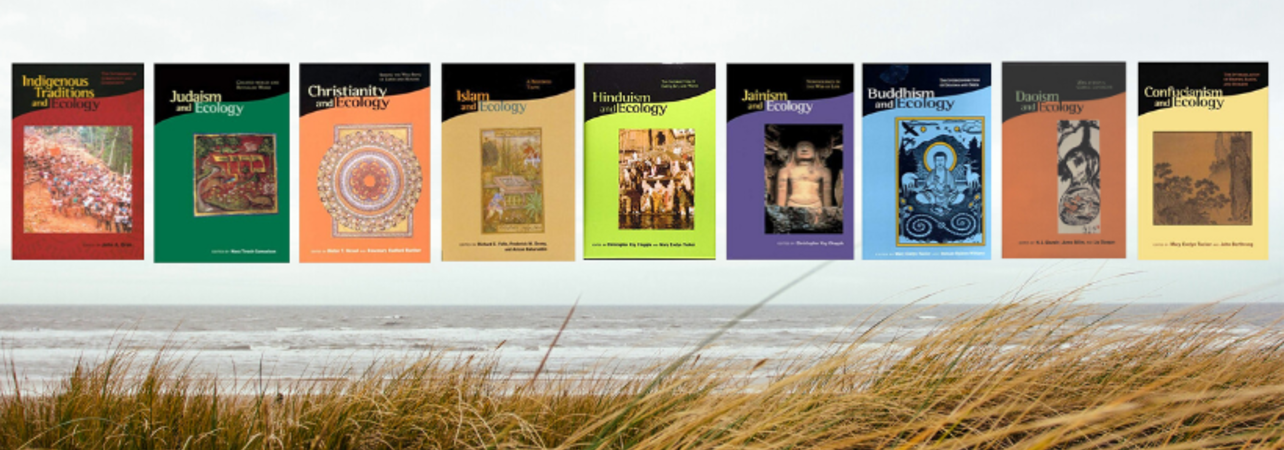Religions of the World and Ecology Series
Confucianism and Ecology Volume
Mary Evelyn Tucker and John Berthrong, eds.
Table of Contents
|
Preface Series Foreword Introduction |
Lawrence E. Sullivan Mary Evelyn Tucker and John Grim Setting the Context |
| Chapter 1 |
The Nature of the Critique “‘Think Globally, Act Locally,’ and the Contested Ground Between” |
| Chapter 2 |
The Context for Response “Early Confucianism and Environmental Ethics” “Extending the Neo-Confucian Tradition: Questions and Reconceptualization for the Twenty-First Century” |
| Chapter 3 |
Conceptual Resources from China, Korea, and Japan “Response and Responsibility: Chou Tun-i and Confucian Resources for Environmental Ethics” “The Philosophy of Environmental Correlation in Chu His” “Ecological Implications of Yi Yulgok’s Cosmology” “The Philosophy of Ch’i as an Ecological Cosmology” |
| Chapter 4 | Philosophical Reflections |
|
“The Trinity of Cosmology, Ecology, and Ethics in the Confucian Personhood” “Motifs for a New Confucian Ecological Vision” “Orientation, Self, and Ecological Posture” |
|
| Chapter 5 |
From Principle to Practice “Some Thoughts on Confucianism and Ecofeminism” “From Heaven-and-Earth to Nature: Chinese Concepts of the Environment and Their Influence on Policy Implementation” |
|
Notes on Contributors Index |
|
Praise:
The ethical thought of Confucianism is often understood as being grounded in a thoroughgoing anthropocentrism, emphasizing as it does the proper ways for humans in various institutional positions and social classes to relate to one another. This anthology provides a corrective to that view and demonstrates that it is at best a partial picture of Confucian thought. Sixteen papers are included, and together they give the reader a sense of the conceptual tools that Confucianism has at its disposal for thinking about ecology and current environmental problems. Many of the essays draw from historical sources; a few look at the relationship between environmental problems and contemporary Confucian thinking. The authors do not attempt to whitewash or paint an unrealistically rosy picture of Confucianism's relation to the environment. Rather, they represent intellectually honest and realistic attempts to come to terms with Confucianism's past relationships and to envision ways in which Confucian thought can offer help in resolving current environmental crises. Most of the papers presuppose no special or extensive background knowledge of either ecology or Confucianism.
—M. A. Michael, Choice

